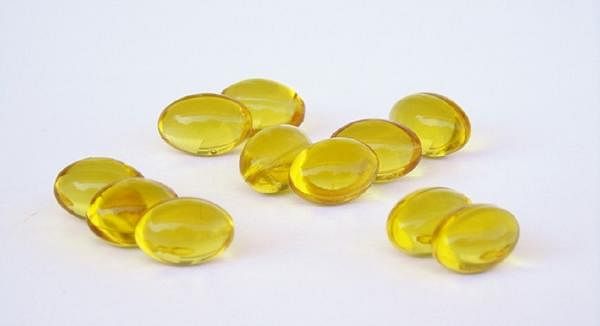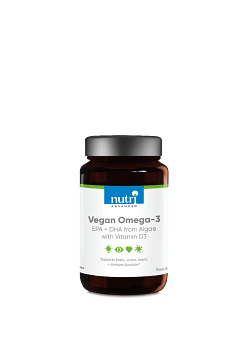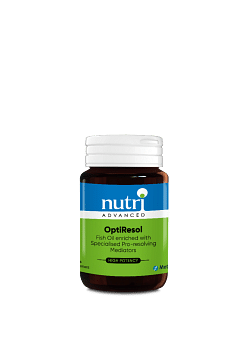Omega-3 Benefits Now Include the Gut Microbiome
Why you can trust Nutri Advanced Every article on our site is researched thoroughly by our team of highly qualified nutritionists. Find out more about our editorial process.
The gut microbiome is a hot topic of research, and we are only just beginning to grasp the extent to which a healthy microbiome affects virtually all aspects of health. Learning how to nourish and protect this internal ecosystem is vital to long term optimal health. Dietary habits play a crucial role in creating a healthy gut microbiota community and much research has focused on the nourishing effects of prebiotic fibres, however less well known is the impact of dietary fats on this community of microorganisms. Early research has found that omega-3s may have an important role to play in supporting a healthy gut microbiome.
Diversity
Some human studies have demonstrated changes in the gut microbiota following omega-3 PUFA supplementation. Omega-3 PUFAs can help to improve microbiota composition in diseases such as IBD, and increase the production of anti-inflammatory compounds, such as short-chain fatty acids. In addition, animal studies have demonstrated a beneficial interplay between gut microbiota, omega-3 fatty acids and immunity which helps to maintain the integrity of the intestinal wall and interacts with host immune cells. Human and animal studies have also found that omega-3 PUFAs may positively influence the gut-brain axis.1
Stress
A 2015 study published in PLoS One found that supplementation with the omega-3s EPA and DHA alters the gut microbiota composition of both neuro-developmentally normal and early-life stressed animals.2 The study authors concluded, “this study offers insights into the interaction between omega-3 PUFAs and gut microbes, which may play an important role in advancing our understanding of disorders of mood and cognitive functioning, such as anxiety and depression.”
Whilst the benefits of omega-3 on other areas of health is well established and includes child development, metal health, joint health, pain and inflammation amongst others; the interaction of omega-3s and the gut microbiome is an exciting area which deserves further study. Get up to date on the latest research with our fully referenced Omega-3 Research Summary.
References:
1. Costantini L, Molinari R et al. Impact of omega-3 fatty acids on the gut microbiota. Int J Mol Sci. 2017 Dec 7;18(12). pii: E2645. doi: 10.3390/ijms18122645.
2. Pusceddu MM, El Aidy S et al. N-3 polyunsaturated fatty acids (PUFAs) reverse the impact of early-life stress on the gut microbiota. PLoS One. 2015 Oct 1;10(10):e0139721. doi: 10.1371/journal.pone.0139721. eCollection 2015.
This website and its content is copyright of Nutri Advanced ©. All rights reserved. See our terms & conditions for more detail.
Nutri Advanced has a thorough research process and for any references included, each source is scrutinised beforehand. We aim to use the highest value source where possible, referencing peer-reviewed journals and official guidelines in the first instance before alternatives. You can learn more about how we ensure our content is accurate at time of publication on our editorial policy.
Most Popular Articles
-
7 Surprising Ways To Support Your Magnesium
If you are displaying signs of a magnesium deficiency, here are 7 ways to boost your magnesium levels that are easy to incorporate into your daily life. -
5 Best Vitamin C Supplements Picked By Our Experts
Learn more about the different types of vitamin C, the different benefits you get from different types, and what you get for spending more on a good supplement. -
Top 5 Vitamins For Energy And Tiredness Picked By Our Experts
The 5 best and most important vitamins for energy & tiredness including B vitamin food sources & best supplement forms for energy. -
Benefits of Myo-Inositol for Polycystic Ovary Syndrome (PCOS)
In this research review article, we take a closer look at a lesser-known natural compound called myo-inositol that has been found to have significant potential to improve many of the prevalent features of PCOS. -
Top 10 Reasons to Give Your Kids Omega-3
Read the top 10 reasons that kids should have plenty of Omega-3- an essential fatty acid- including for depression, brain function, sleep & reading/maths skills.













